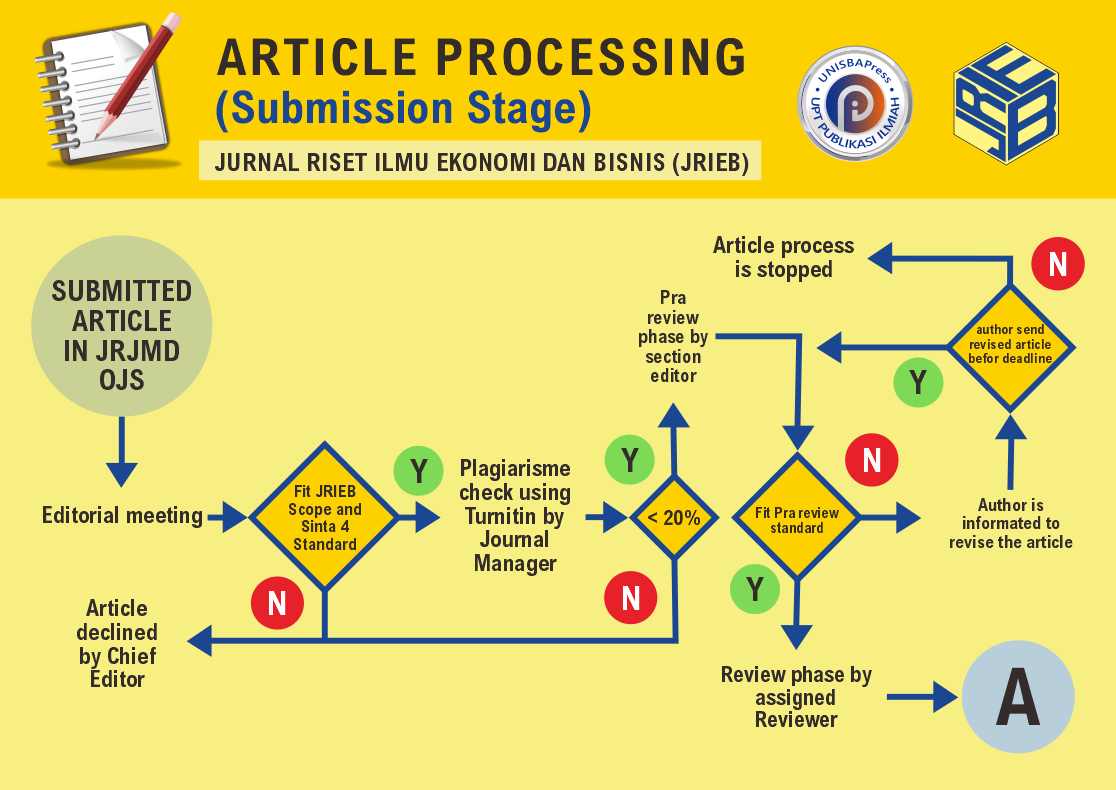Kausalitas Kebijakan Moneter Konvensional dengan Inflasi dan Pertumbuhan Ekonomi di Indonesia Periode Q1 2008 – Q4 2020
DOI:
https://doi.org/10.29313/jrieb.v1i1.203Keywords:
Kebijakan Moneter Konvensional, VECM, Uji IRFAbstract
Abstract. This study aims to identify the causality of conventional monetary policy with inflation and economic growth in Indonesia during the observation period. The research method used is descriptive quantitative. The data used are data from the first quarter of 2008 to the fourth quarter of 2020. This study uses secondary data published by BI, OJK, BPS, World Bank, as well as various literatures that will be used. The data analysis method used in this study is the VECM and Grangger Causality model consisting of the Grangger test, IRF test, VD test, and VECM estimation. The results of this study found that, causally, there is no continuity of conventional monetary policy transmission lines. In terms of IRF, the shock given by conventional variables to the inflation response subsided and remained stable for longer. In this case, the conventional variable is inflationary. In VD, conventional variables tend to give a larger negative contribution to inflation and reduce output. According to VECM, conventional variables in the short term tend to have a positive impact on inflation, and provide trade-offs in the long term.
Abstrak. Penelitian ini bertujuan untuk mengidentifikasi kausalitas kebijakan moneter konvensional dengan inflasi dan pertumbuhan ekonomi Indonesia selama periode pengamatan. Metode penelitian yang digunakan adalah deskriptif kuantitatif. Data yang digunakan adalah data kuartal I 2008 sampai kuartal IV 2020. Penelitian ini menggunakan data sekunder yang dipublikasikan BI, OJK, BPS, World Bank, serta berbagai literatur yang akan digunakan. Metode analisis data yang digunakan dalam penelitian ini adalah model VECM dan Grangger Causality terdiri dari uji grangger, uji IRF, uji VD, dan estimasi VECM. Hasil penelitian ini menemukan bahwa, secara kausalitas tidak terdapat kesinambungan alur transmisi kebijakan moneter konvensional. Secara IRF, shock yang diberikan oleh variabel konvensional terhadap respon inflasi mereda dan stabil lebih lama. Dalam hal ini, variabel konvensional bersifat inflationer. Secara VD, variabel konvensional cendrung memberikan kontribusi negatif lebih besar terhadap inflasi dan menurunkan output. Secara VECM, variabel konvensional dalam jangka pendek cenderung memberikan dampak positif terhadap inflasi, dan memberikan trade-off dalam jangka panjang.













